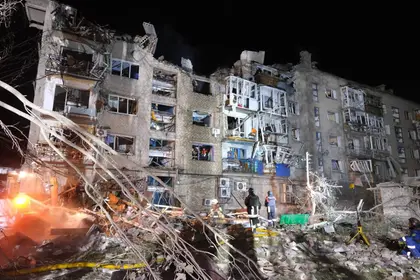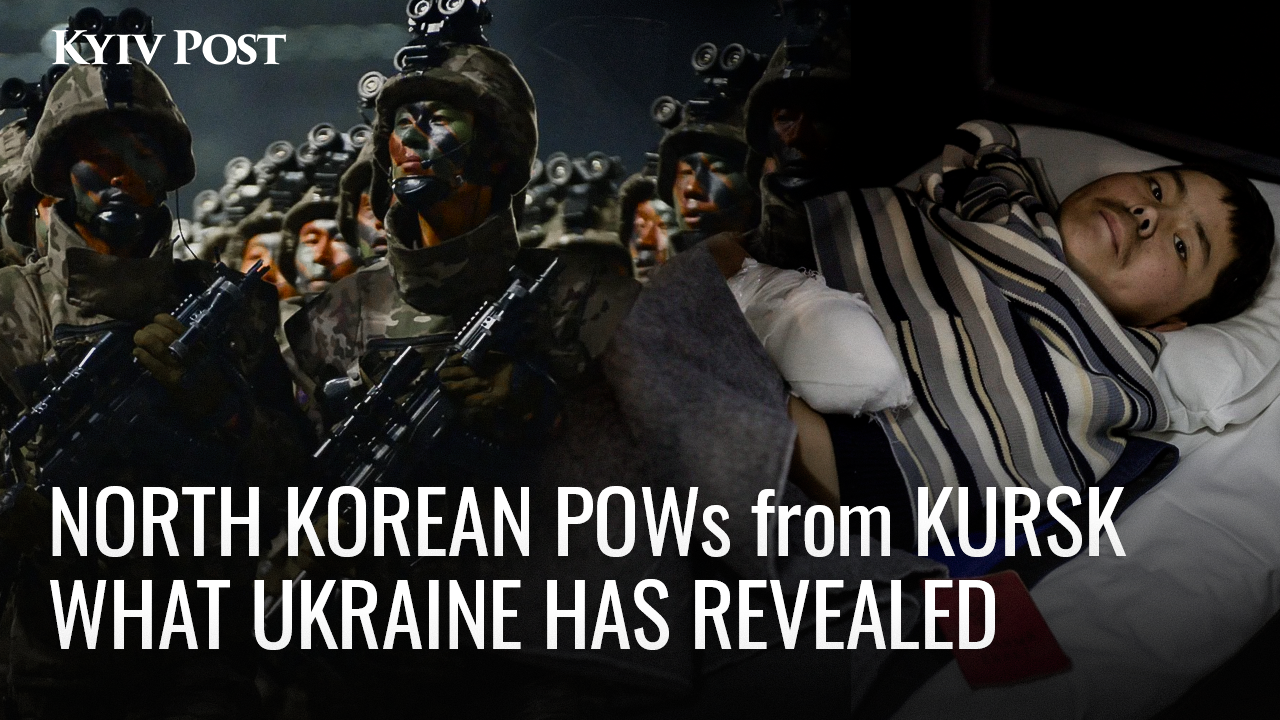Nine have been killed and 82 injured after two Russian missiles – 40 minutes apart – hit a residential building in the eastern Ukrainian city of Pokrovsk.
Many of the dead and wounded are emergency workers attending the scene of the first explosion, a deliberate attack strategy often used by Moscow’s forces known as a “double-tap.”
JOIN US ON TELEGRAM
Follow our coverage of the war on the @Kyivpost_official.
Before the number of injured rose from 67 to 82, Ukraine's minister of internal affairs Ihor Klymenko said the second attack killed a high-ranking emergency official of the Donetsk region and “29 police officers, seven rescuers and two children” were among the wounded.
- Read the newest war in ukraine update in the Kyiv Post’s daily news coverage for today.
- See the most contemporary Ukraine news reports for today.
A hotel, catering establishments, shops and administrative buildings were also damaged.
He added that the rubble was still being cleared and that “search and rescue operations are ongoing” but during the night operations had to be paused due to the threat of more Russian strikes on the area.
On Tuesday evening, President Zelenskyy said rescue operations were completed. "Nine people died. My condolences to their relatives and friends. 82 people were injured. Everyone is being given the necessary help. Among the injured are two children, both boys, one of them is in serious condition," Zelensky said.
The first strike on the city’s center using Iskander missiles was at 7:15 p.m. after which first responders rushed to the scene.

British Defence Intelligence Update Ukraine 23 January 2025
A second strike of Iskanders was at 7:52 p.m. as police, ambulance, firefighters, emergency services and other personnel were trying to rescue civilians from damaged and destroyed structures.
Iskander missiles are guided ballistic missiles with a range of up to 500 kilometers. They are launched from trucks. Each missile costs around $3 million.
Capable of carrying nuclear warheads, Iskanders are considered among the most sophisticated weapons held by the Russian military, including their capacity to avoid air defense systems.
President Volodymyr Zelensky expressed his outrage and condemnation of the Russian attack on Twitter.
The city of Pokrovsk, Donetsk region. Donbas, from which Russia is trying to leave only broken and scorched stones. Two missile strikes. An ordinary residential building was hit. Unfortunately, there are victims. Rescuers and all necessary services are on the scene. The rescue of… pic.twitter.com/zsIA7dR6HR
— Volodymyr Zelenskyy / Володимир Зеленський (@ZelenskyyUa) August 7, 2023
“The city of Pokrovsk, Donetsk region. Donbas, from which Russia is trying to leave only broken and scorched stones. Two missile strikes. An ordinary residential building was hit… Russia will be held accountable for everything it has done in this terrible war,” the Ukrainian leader said.
Among those killed in the second wave of missiles was Andriy Omelchenko, a leader of Ukraine’s emergency response services called the “DSNS”.
In his role, Omelchenko, 52, had previously served and coordinated rescue efforts at dozens of other sites attacked by Russian forces during the full-scale invasion.
Глибоко сумуємо через загибель Андрія Омельченка - полковника служби цивільного захисту, заступника начальника Головного управління з реагування на надзвичайні ситуації Головного управління ДСНС України у Донецькій області.
— МВС України (@MVS_UA) August 8, 2023
Цого життя забрала російська ракета в Покровську. pic.twitter.com/G43vEFaDl7
A policeman injured at the site was recently featured in the highly acclaimed film “20 Days in Mariupol” which is about the initial stages of Russia’s occupation of the city.
Pokrovsk lies some 70 kilometers north-west of the Russian-occupied city of Donetsk, and some 50 kilometers from the frontline.
According to the 2001 census – the last conducted by Ukraine - the city had 75,000 residents. At that time, 60 percent of Pokrovsk residents identified as Russian speakers, and 22 percent identified as ethnically Russian.
A key Russian strategy since the start of Ukraine’s summer offensive in June has been to increase the bombing of Ukrainian civilians.
No, these aren't WWII images. It’s Russian missiles in Pokrovsk, another frontline city that Russia aims to erase. pic.twitter.com/MYQRPj9LJy
— Maria Avdeeva (@maria_avdv) August 7, 2023
This has included an emphasis on regional cities, such as Pokrovsk, which do not have the same level of air defense as major cities, such as Kyiv or Dnipro.
Under international law, such as the Geneva Conventions, there are specific provisions for war crimes that involve the targeting of those rendering humanitarian assistance, such as first responders on an emergency scene.
Social media reacted with anger to the mass murder. Nate Mook, the former CEO of humanitarian organization World Central Kitchen, had recently dined at a pizza restaurant in Pokrovsk.
Today, Russia attacked the city of Pokrovsk in eastern Ukraine. Missiles targeted a hotel & pizza restaurant frequented by volunteers & journalists—I just ate there some weeks ago. While rescue services were responding, Russia bombed again, killing Andrii, deputy head of… pic.twitter.com/15ou05OYsD
— Nate Mook (@natemook) August 7, 2023
You can also highlight the text and press Ctrl + Enter













